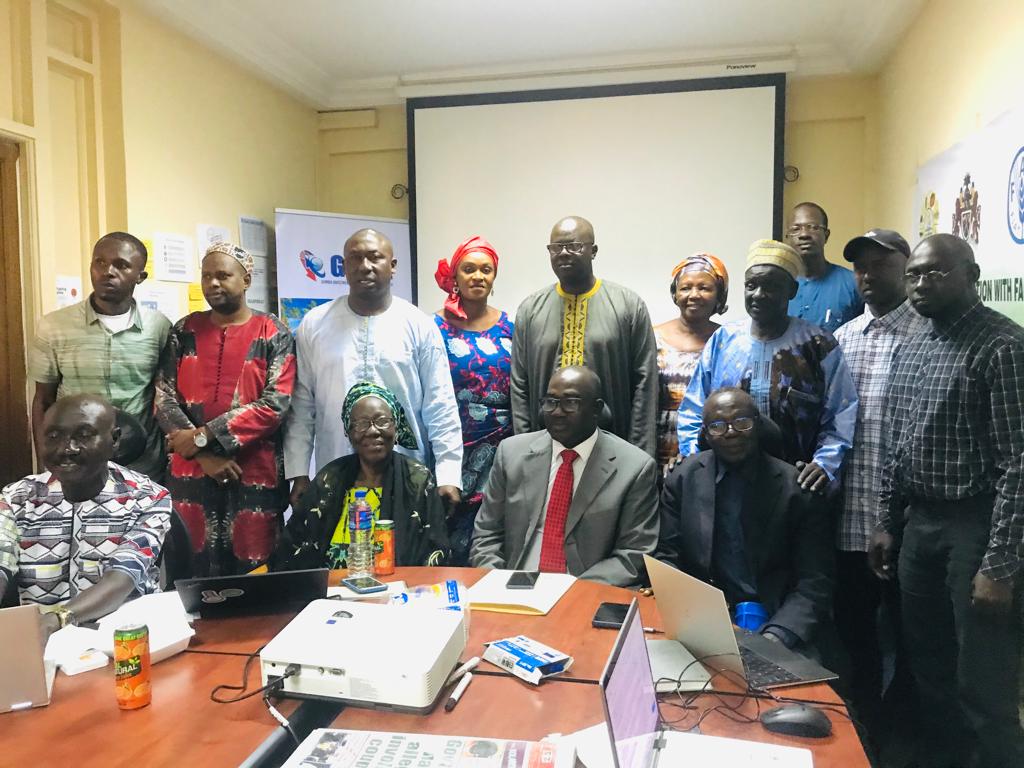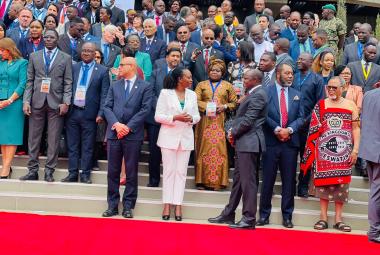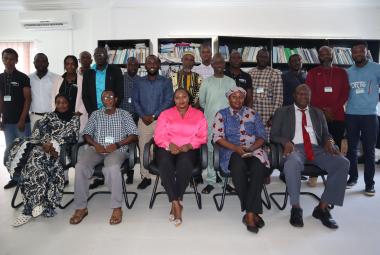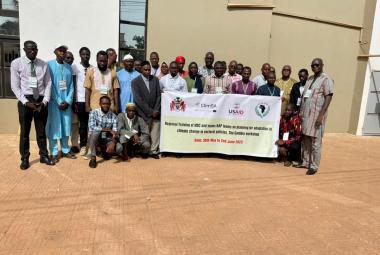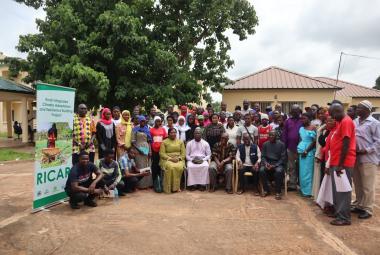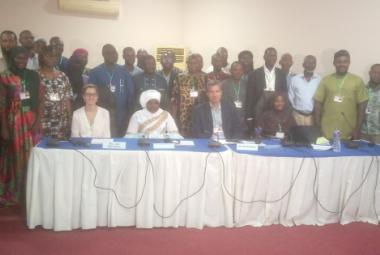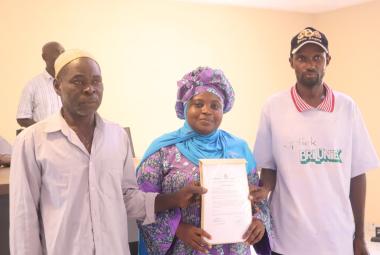National Coordinating Organization of Farmer Associations Gambia (NACOFAG) in collaboration Ministry of Environment, Climate Change and Natural Resources (MECCNAR) with support from The Food and Agriculture Organization (FAO) on Thursday, 29th December 2022, concluded a two-day interactive forum with the Climate Change Committee.
The forum aims at strengthening the collaboration between the organization and the ministry in climate change mitigation and resilience as well as to discuss how farmers can contribute to tackling climate-related issues in the country.
In his opening remarks, the Permanent Secretary (PS) Mr. Alieu Njie at MECCNAR said that the earth’s climate is now changing faster than at any point in the known history of the climate as a result of human activities. He noted that there is scientific consensus that unmitigated carbon emissions will lead to global warming at least several degrees Celsius by 2100, resulting in high impacts of local, regional, and global risks to human society and ecosystems.
PS Njie added that Global Climate change has already resulted in a wide range of impacts across every region of the earth in many economic sectors.
‘’The impacts related to climate change are evident across communities, countries and across the globe. Therefore, many sectors important to society such as agriculture and food security, water supply, biodiversity, and ecosystems, impacts are expected to become increasingly disruptive in the coming decades. The frequency and intensity of extreme heat and heavy precipitation events are increasing in most continental regions of the world, and Gambia is not an exception; these events are certain to increase in the future as global temperature increases.
‘’Observed and projected trends for other types of extreme events, such as floods, drought, and severe storms, have more variable regional characteristics,’’ PS Njie highlighted.
Director of Climate Secretariat, Mr. Alpha A.K Jallow said that partnerships are key to climate change mitigation and resilience. He added that the implementation of the country’s Nationally Determined Contributions (NDCs) which the government cannot do alone, has to be decentralized, and that is why such forums are important to achieve smart agriculture goals, whereby crops can be produced with less emission or less usage of fertilizer, hence the collaboration with farmers is needed.
The president of NACOFAG, Mr. Musa Sowe stated that one of the initiatives of the organization is to collaborate with MECCNAR to understand climate mitigation and resilience policies under the ministry to help them develop strategies in response to climate change issues in the country.
The recently validated 2050 Climate Vision of The Gambia underscores a high level of commitment to decarbonisation with the goal to achieve net zero emissions by 2050. This forum could not have come at a better time as one of the key focus areas of the vision is ‘’Climate resilient food and landscapes’’; which seeks to support sustainable agriculture, food security, forestry, and natural resources, including water, biodiversity, and wildlife.

